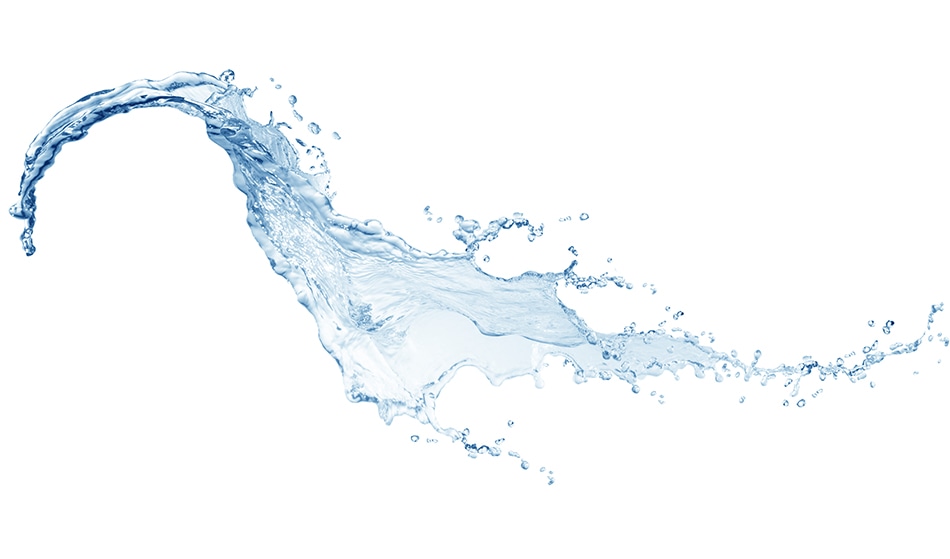 Image credit: CK Foto / Shutterstock
Image credit: CK Foto / Shutterstock
Water is, for want of a better word, strange. It expands when cold, where other liquids don’t. It stays a liquid below its freezing point in certain scenarios and can even reach its own singularity. That’s why scientists have been exploring its reactions to extreme cooling.
Physicists at the Institute for Nuclear Physics at Goethe University, Frankfurt have found a new way to supercool water. Another team from Sweden, Korea and Japan did a similar experiment at a similar time with the results published in Science. The supercooling processes caused researchers to discover that the strange mathematical oddity, known as a singularity, applied to water.
The technique has allowed water to reach a temperature of minus 42.55 degrees Celsius or 230.6 Kelvin. When you consider that water usually freezes into a solid at 0 degrees Celsius, that’s a pretty impressive feat and one that can only be achieved by supercooling. Bear in mind that a measure of temperature is simply recording how fast molecules move in an object - the slower they vibrate the closer to a solid they are.
Tracking those changes at this scale involves measuring the diameters of microscopic water droplets in an evacuated chamber (a vacuum sealed without any gases). They are then illuminated using x-ray lasers, allowing the scientists to record them with super accurate precision. Essentially, the smaller the droplet fired into the vacuum is, the colder it could get while remaining a liquid, since it is less likely to crystallise.
By lowering the temperature, it causes the particles on the surface to evaporate, thereby removing heat. As the droplet grows smaller the laser measurement could be used to equate a temperature.
So what did the singularity reveal? The team that managed to reach 228 Kelvin noticed that the water appeared to exist in two different density phases simultaneously. This was based on how the clusters of a few connected water molecules stacked up in the droplets. Water appears to reach a point where it fluctuates between two states of higher and lower densities when at extreme temperatures, as though it is unsure of what state it should be in. This shift means that the exact state of the water can’t cleanly be defined and is where the term singularity comes from.
So what does that mean? The more scientists can learn about water, which permeates our planet, the more they can understand and improve on climate models of atmospheric phenomena like ice formation. The earth already has water that supercools at a liquid state when at different pressure, at altitude, but we’ve not been able to measure and observe it accurately until now.
While some scientists like Paola Gallo from Roma Tre University in Italy commented on the discoveries in a positive light, stating that they were important for science, others were less excited. Alan Soper from Rutherford Appleton Laboratory in the UK said that the singularity state could simply be the water about to crystallise. "They have clearly seen something and it's very interesting," he said, "but what's actually causing it is probably something we don't have a straightforward answer to."
Anders Nilsson, a professor of Chemical Physics at Stockholm University and a corresponding author of the Science paper, said in a university press release: "What was special was that we were able to X-ray unimaginably fast before the ice froze and could observe how it fluctuated between the two states. For decades there has been speculations and different theories to explain these remarkable properties and why they got stronger when water becomes colder. Now we have found such a maximum, which means that there should also be a critical point at higher pressures."
He went on to comment: "There has been an intense debate about the origin of the strange properties of water for over a century since the early work of Wolfgang Röntgen. Researchers studying the physics of water can now settle on the model that water has a critical point in the supercooled regime. The next stage is to find the location of the critical in terms of pressure and temperature. A big challenge in the next few years."
[SOURCE: http://www.newsweek.com/physicists-create-coldest-liquid-water-bizarre-mathematical-singularity-776954]
Disclaimer: The views expressed here are those of the author expressed in their private capacity and do not necessarily represent the views of AZoM.com Limited T/A AZoNetwork the owner and operator of this website. This disclaimer forms part of the Terms and conditions of use of this website.